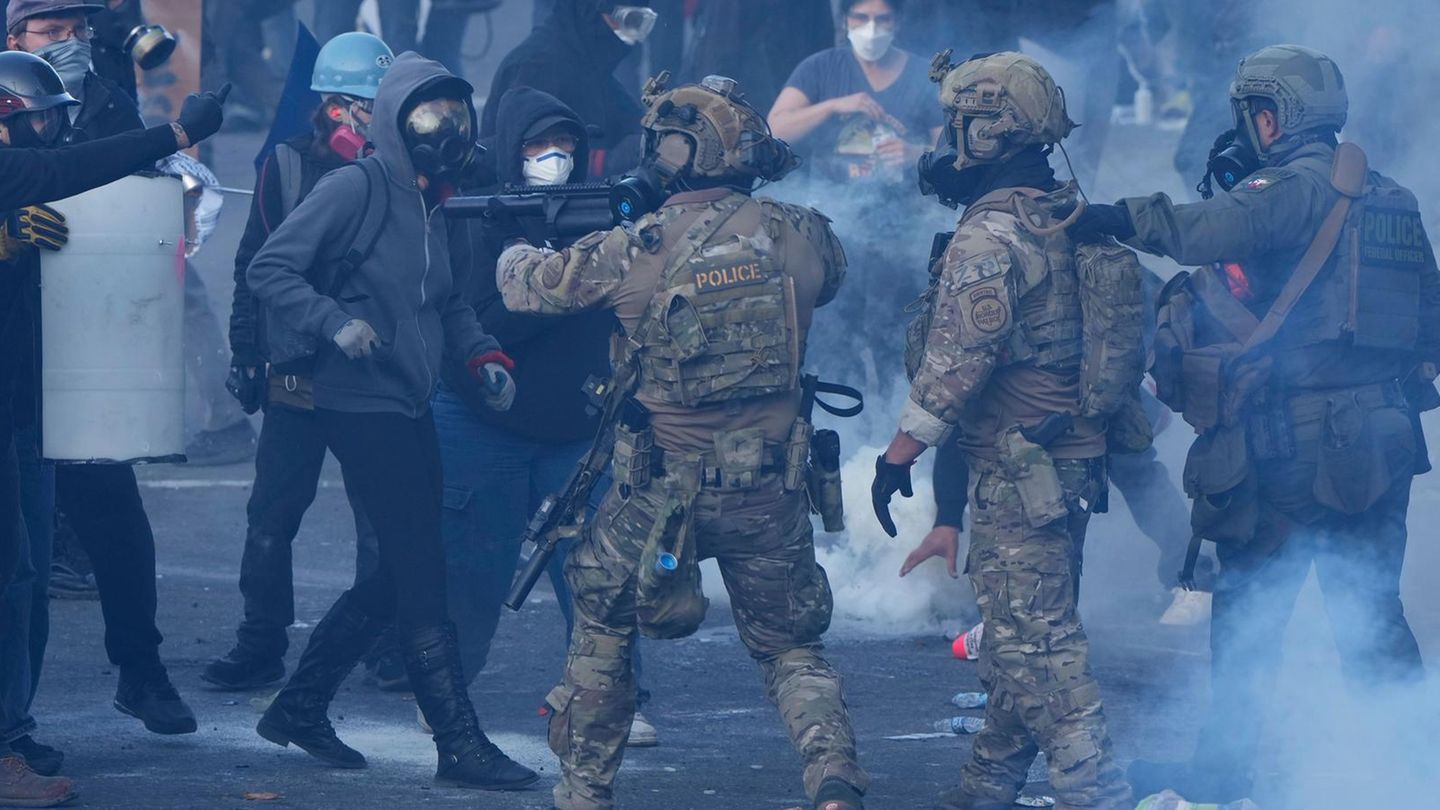https://twitter.com/evoespueblo/status/1535608652454711296
Despite the lies, Chicanas and even actions to say that she was sick or about to die, the justice ruled that Añez and her accomplices assaulted power with a coup. 10 years in prison is a mild sentence in relation to the damage they caused to democracy.
– Evo Morales Ayma (@evoespueblo) June 11, 2022
“Ten years in prison is a benign sentence in relation to the damage they caused to democracy,” stressed.
Áñez was sentenced yesterday to ten years in prison for the crimes of breach of duties and resolutions contrary to the Constitution and the laws in the “coup d’état case II”, in which her decision to assume the head of state in November was analyzed of 2019.
What Añez said during her final argument
The sentence, which must be served in the Miraflores prison, was the end of an extensive process, with numerous interruptions – some technical and others related to Áñez’s health – and constitutes the first relevant resolution on the forced departure from power of the then President Morales and the de facto government that took over in his place.
Before hearing the decision of the Justice, in her last words, Áñez said that she was subjected to a “mock trial” stressed that he would act “in the same way” if the circumstances for which he assumed the presidency were repeated and denounced that the Court “Political power demanded an express trial to have an express sentence.”
Áñez complained that she was denied “absolutely everything” during the process, lamented “the delicacies” of the Court, which rejected evidence of her defense and attributed these attitudes to the need to “have an expedited path to have a conviction.” In addition, he insisted that in 2019 there was a “power vacuum” and stressed that he did not move “a finger” to assume the Executive.
In addition to Áñez, six former military and police chiefs were prosecuted for having made decisions contrary to the Constitution and will serve their sentences in the San Pedro prison.
The Government of Bolivia celebrated the conviction of Añez
For the Government of Bolivia, this trial sets “a historical precedent so that a coup d’état will not be repeated again”.
“The sentence for the Coup II case is a historical precedent, so that a coup d’état is not repeated after the rupture of the constitutional order. It establishes before history that the democratic and constitutional path is the only route to reach the power,” the Justice Ministry said in a statement after learning of the ruling.
In a statement, the Justice portfolio stressed that the process was framed in the laws and assured that international organizations such as the Inter-American Commission on Human Rights (IACHR) verified that the human rights and “jurisdictional guarantees” of the former de facto president were respected.
Áñez has two other trials pending, one on “Coup d’etat case I“, for her acts as president and others for the deaths that occurred during the calls Sacaba and Senkata massacres, in which street protests were repressed.
Source: Ambito
David William is a talented author who has made a name for himself in the world of writing. He is a professional author who writes on a wide range of topics, from general interest to opinion news. David is currently working as a writer at 24 hours worlds where he brings his unique perspective and in-depth research to his articles, making them both informative and engaging.




